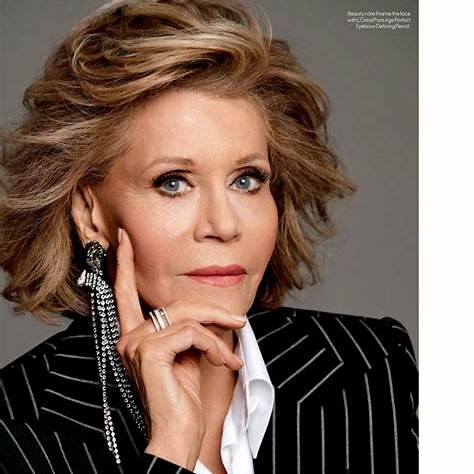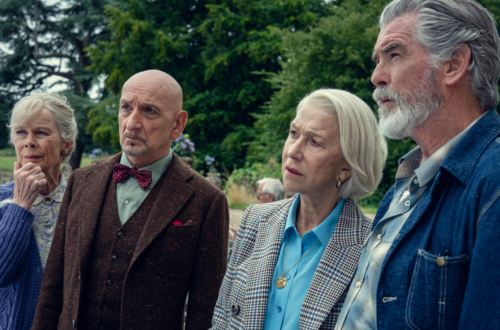Jane Fonda is reviving a new incarnation of her Cold War-era free speech activism with the founding of a 21st century movement she’s calling “Voices Unbound.” The group’s mission is to protect, expand, and defend First Amendment rights in an era of online censorship, algorithmic silencing, threats to press freedom, and the chilling effect of polarized politics. Fonda says this is not a nostalgic rehash but a radical adaptation to new terrain.
The idea surfaced in private conversations over the past year, as Fonda watched news cycles unfold: journalists deplatformed, political dissent flagged as “unverified,” student publications canceled, and local media gobbled up by consolidation. She saw echoes of earlier eras in digital surveillance, content moderation opaque to users, and dominant tech platforms acting as arbiters of acceptable speech. Fonda began meeting with longtime civil rights lawyers, free-speech scholars, and younger media activists. What emerged was a plan for a distributed, multilingual network she hopes will act as both a defender and laboratory of free speech in our moment.
Voices Unbound will operate with three pillars: rapid response, capacity building, and narrative support. Rapid response means setting up legal teams—and a digital “strike force”—that can intervene in censorship cases, takedown disputes, deplatforming, or threatened retaliation against speech. Capacity building involves training journalists, grassroots organizers, and community voices in digital literacy, encryption, secure publishing, algorithmic fairness, and how to engage hostile moderation systems. Narrative support is media amplification, storytelling, and cultural intervention—ensuring that suppressed voices are amplified, dissenting ideas find audiences, and marginalized speech is supported rather than silenced.
Fonda is no stranger to confrontation. During the Vietnam War era she spoke out, was arrested, and campaigned for rights and justice. Later in her activism she took up climate, women’s rights, disarmament, and more. But this next chapter is anchored in a belief that free speech is under siege in new dimensions—far beyond overt government censorship. She argues that in the 21st century, speech is controlled not only through laws, but through platforms, algorithms, surveillance, and the economics of media.
At a kickoff event in Washington, D.C., Fonda spoke before a diverse crowd of students, reporters, technologists, and activists. She evoked her past efforts but stressed the difference this time: this movement is neither co-opted by partisan politics nor constrained by a single issue. She described “zones of censorship” in schools and universities, social media deplatforming, digital redaction, and even the chilling fear of being labeled extremist or disinformation simply for dissent. We need systems that allow for error, disagreement, evolving ideas, she said.
Among the first test cases Voices Unbound plans to take up: a college newspaper whose funding was cut after publishing an investigative piece; a journalist whose account was deactivated after sharing reporting about police misconduct; a community audiobook project suppressed under copyright claims. They are also laying groundwork for a “Free Expression Fellowship,” which will place lawyers and media defenders in regions under censorship pressure, especially border states and college campuses.
Critics are already sharpening objections. Some argue that Fonda’s past political image will taint the movement, making it easier for opponents to dismiss it as ideological activism rather than constitutional advocacy. Others warn about the risk of conflating “speech people don’t like” with protected free expression, pointing out the fine line between harassment, disinformation, and dissent. And some question whether a movement led by a celebrity—even one with decades of cred—can navigate the serious, jurisprudential complexities of modern speech law.
Still, many observers believe Fonda timed this effort astutely. The Supreme Court is expected to hear upcoming cases involving social media liability, Section 230 reform, journalistic shield protections in the digital age, and algorithmic transparency. State legislatures are clashing over media regulation, online misinformation laws, and deplatforming powers. Fonda’s intervention gives free speech advocacy renewed visibility and a cross-generational bridge between the legal world and public consciousness.
She acknowledges that the battle will be uneven and slow. She warns that enshrining free speech in theory is easier than protecting it in practice when billion-dollar platforms, data monopolies, and centralized content governance are entrenched. She says the ambition is to build local nodes—city, campus, community level—where people can apply layered defenses: legal, technical, cultural. Speech freed in one bubble won’t help if it’s locked down elsewhere.
Behind her initiative lies personal motivation: Fonda has frequently spoken about how censorship, blacklisting, and suppression shaped her life and career. She sees Voices Unbound as not just activism, but redress and investment in a future she’ll likely not fully see. She has committed significant seed funding to get the movement off the ground and is reaching out for philanthropic, institutional, and grassroots partners.
Voices Unbound is set to launch its first public digital hub in early 2026, with a map of partner organizations, legal clinics, resource libraries, and an open case submission portal. The movement will host a “Free Speech Week” tour, starting at university campuses, urban centers, and independent media collectives. Fonda says she’s not looking for headlines—she’d prefer cases won, voices heard, and laws shifted.
It’s a striking evolution of her activism: from protests on the ground to advocacy in media, now to constitutional ecosystem building. Whether Voices Unbound succeeds may hinge on partnerships, discipline, legal strategy, technologists, and whether people outside progressive circles accept it as a principled, not partisan, force. But if Jane Fonda intends anything, it’s resurgence. Her message is clear: free speech is not a relic of older struggles, but the battleground of our time—and she’s back in it for the long haul.




